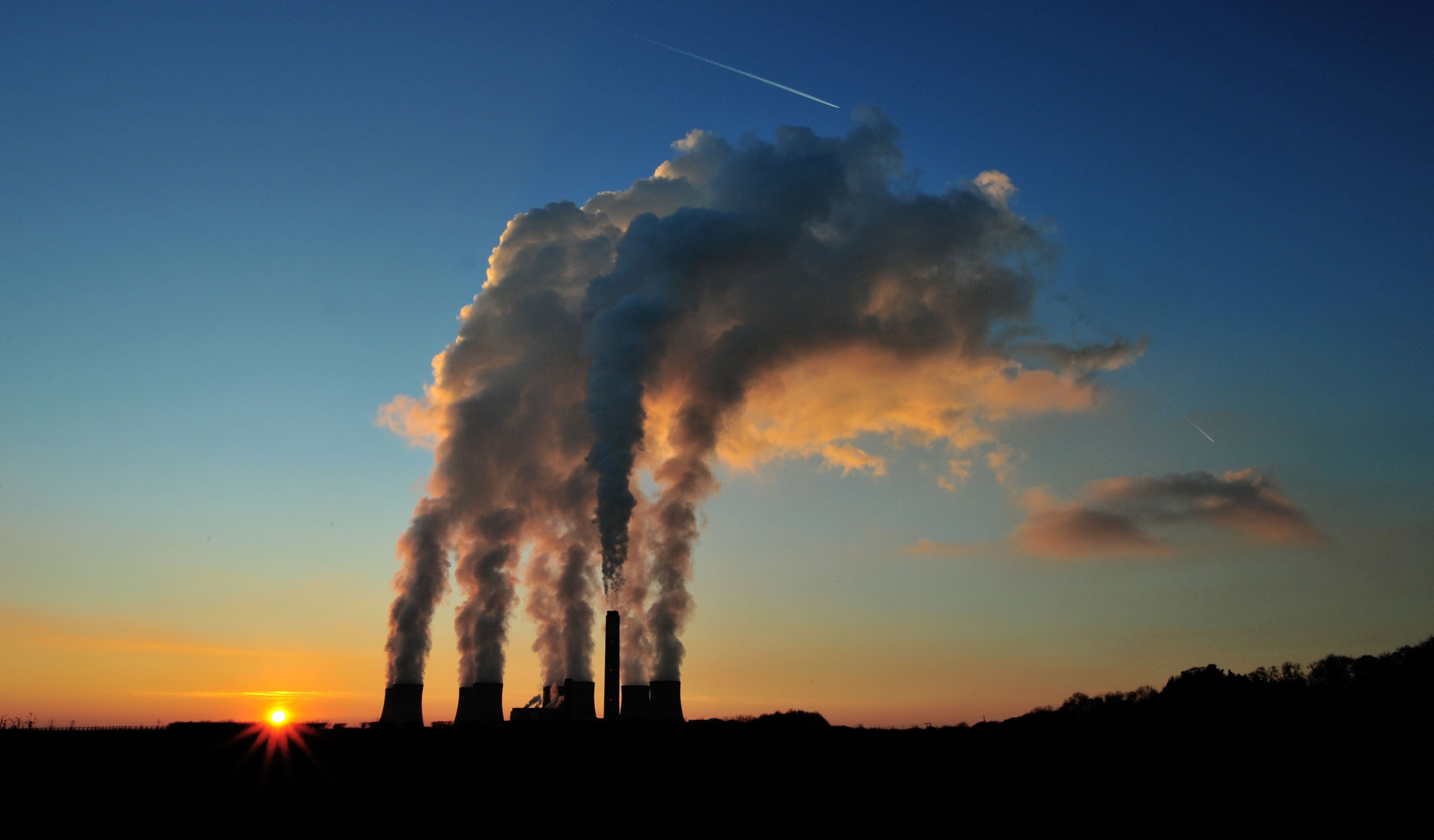Calls for shift from fossil fuels as UN prepares to release new climate report
The latest update from the Intergovernmental Panel on Climate Change will look at the measures needed to tackle global warming.

Your support helps us to tell the story
From reproductive rights to climate change to Big Tech, The Independent is on the ground when the story is developing. Whether it's investigating the financials of Elon Musk's pro-Trump PAC or producing our latest documentary, 'The A Word', which shines a light on the American women fighting for reproductive rights, we know how important it is to parse out the facts from the messaging.
At such a critical moment in US history, we need reporters on the ground. Your donation allows us to keep sending journalists to speak to both sides of the story.
The Independent is trusted by Americans across the entire political spectrum. And unlike many other quality news outlets, we choose not to lock Americans out of our reporting and analysis with paywalls. We believe quality journalism should be available to everyone, paid for by those who can afford it.
Your support makes all the difference.There are renewed calls for a shift away from fossil fuels as the UN prepares to release a major report on what the world needs to do to tackle climate change.
The latest report from UN science body the Intergovernmental Panel on Climate Change (IPCC) sets out solutions needed to curb global warming, including cutting fossil fuel emissions with technology such as renewables.
The report, due out on Monday, will set out measures to cut emissions from the energy sector, agriculture and land, cities, buildings, industry and transport.
It is also expected to emphasise the role of consumer behaviour and look at ways to take carbon dioxide out of the atmosphere, including through activities such as planting trees as well as new technology.
It comes as soaring energy prices and supply pressures, worsened by Russia’s invasion of Ukraine, have prompted renewed debate over security of supplies, and whether to accelerate climate action or exploit more oil and gas resources.
In the UK, the fossil fuel industry and some MPs have urged a restart to controversial fracking or more extraction from North Sea oil and gas, but there have also been widespread calls for insulating homes, more renewables and weaning the country off gas in response to the crisis.
The Government is set to unveil its new energy security strategy this week, with expectations it will set out plans to boost new nuclear power capacity, solar and offshore wind.
But there appears to have been debate within Government over the role of onshore wind, although it is cheap and popular with the public, and any efforts to boost domestic oil and gas production in the strategy will prove controversial with campaigners.
The new UN report is the third instalment of the sixth assessment report, an overarching analysis of the world’s scientific knowledge on climate change.
The assessments take place every six or seven years, with the individual instalments released over a period of months.
Our fossil fuel dependence is funding Putin's war and soaring gas prices are hurting millions of households
Each climate report from the IPCC is published after its summary is approved line by line in a process involving representatives of 195 governments and scientists – with the latest report’s approval meeting running well past its Friday scheduled finish time.
The first part of the assessment, which looked at the physical basis of climate change, which was released August 2021, found humans are unequivocally driving global warming, with the effects already being felt.
It was labelled a “code red for humanity” by UN secretary-general Antonio Guterres.
When the second report was released in February, detailing the impacts of rising temperatures and options – and limits – to adapting to them, Mr Guterres described it as “an atlas of human suffering and a damning indictment of failed climate leadership”.
It found climate change has led to increasing heat and heatwaves, rising sea levels, floods, wildfires, and drought, causing death, food and water scarcity, and migration.
Ahead of the latest report’s publication, Greenpeace UK senior climate adviser Charlie Kronick said: “Our fossil fuel dependence is funding Putin’s war and soaring gas prices are hurting millions of households.
“We already have good reasons to move away from oil and gas and invest in insulation and heat pumps to cut energy wastage from our homes.”
“But on Monday, the world’s leading climate scientists will remind us of the other major reason we must do so: to stop the climate disaster threatening everything we hold dear.”
Sam Hall, director of the Conservative Environment Network, which includes dozens of Tory MPs, said: “The case for reducing fossil fuel consumption across the economy has only got stronger.
“Fossil fuels are now much more expensive than they were; getting off them therefore helps with the cost of living. There’s now also the additional national security imperative, to eliminate Russian fossil fuels imports.”
He said the goals of energy security, cost of living and cutting emissions to net-zero to tackle climate change all pull in the same direction.
“The answer remains the same in all cases: clean energy deployment, reducing fossil fuel consumption, and improving energy efficiency.”
Gareth Redmond-King, international lead at the Energy and Climate Intelligence Unit, said the third report from the IPCC sets out solutions to the crisis it had already highlighted.
“It sets out, in some detail, how we respond to the alarm and avoid the apocalyptic future we know we’re heading for if we don’t act.
“It is clear that the solutions are cheaper than the impacts – that acting to tackle the climate crisis is cheaper than not acting.
“It is now down to political leaders – particularly G20 leaders, as the largest economies and biggest emitters – to choose how bad we let things get.”